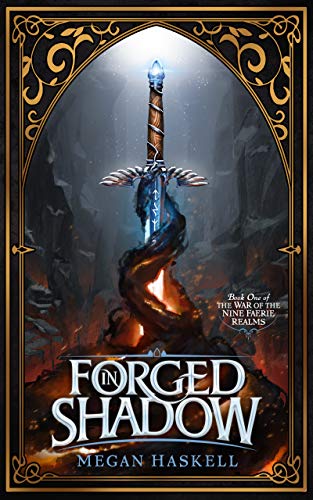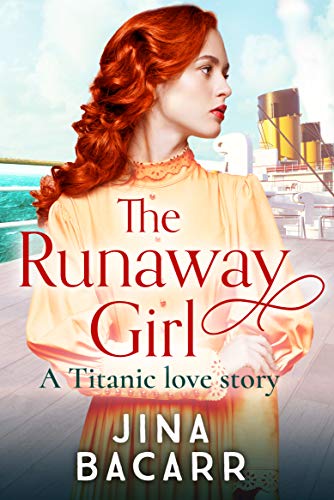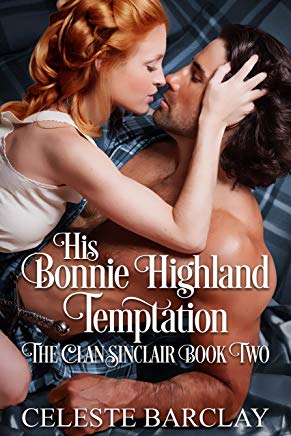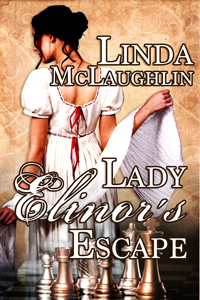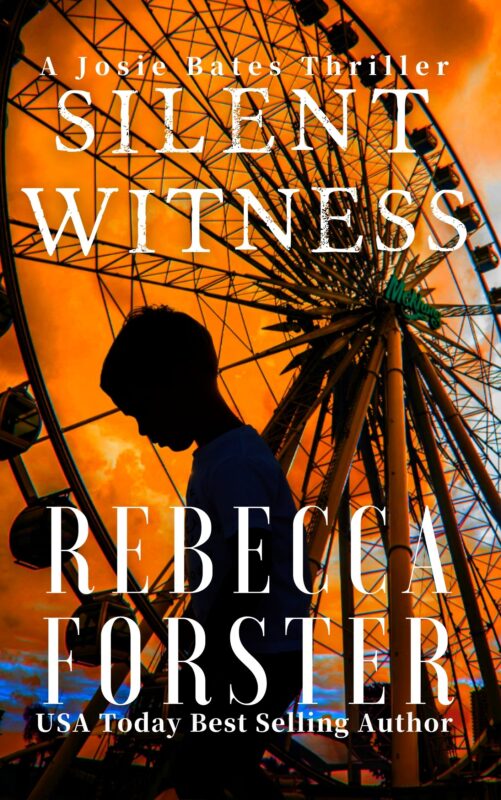ART & SOUL
August 16, 2014 by A Slice of Orange in category Archives tagged as business, Digital only publishing, self publishing, traditional publishingI want to be upfront: I borrowed that headline. I saw it in the Los Angeles Times this morning and it started me thinking about how we, as writers, view ourselves. Actually, that’s not quite correct. I’ve been thinking about this ever since I joined a discussion on LinkedIn. It went something like this.
Oh Heck! E-rotica or E-romance?
June 15, 2011 by Rebecca Forster in category The Write Life by Rebecca Forster tagged as Digital only publishing, editor, erotic romance, erotica, Rebecca Forsterby Rebecca Forster
Oh, that word erotica. Written, it looks naked and naughty; spoken it sounds enticing and exciting. Close your eyes and – well, only you know what images it conjures up. Which brings us to the topic of the day: When it comes to sexy books, where do both reader and writer draw the line between erotica and steamy romances?
The Editor/Publisher: Normally, this is not a topic I would have visited but a few things have caught my eye in the last few years. First, erotica started being pulled into the mainstream of my local bookstore. Second, category romance became more inventive and definitely steamier. Finally, the advent of E-books and independent publishing allows more sexually explicit material do be read in utter privacy. Think of your Kindle or Nook as the new brown paper wrapper and there’s lots to put inside. Nookbooks (Barnes & Noble) offers 7,718 books defined as erotica; Kindle (Amazon), 24,901 (as of this writing). One online publisher reports that 12% of his offerings are listed as erotica but, in all instances, romance inventory is far greater.
That still left me curious as to the blurring of the line between erotica and steamy romance. Audrey LeFehr who edits books for Kensington’s Aphrodisia imprint as well as other genres was very clear about what she looks for. There are no ‘romance rules’ in erotica (one woman, one man, commitment no matter how steamy the sex). Rather erotica explores the boundaries of a woman’s sexual satisfaction without being depressing, degrading or seriously frightening. This could include same sex or multiple lovers.
The Erotic Author:
The reason an author decides to write erotica are basic: a burning story line, creative expression, pushing the boundaries of their art.- not to mention that the adult entertainment market is huge and there is money to be made.
Locklyn Swallow, author of numerous shorts including her most recent Love By Disguise, admits money was her initial motivation and her objectives have been met. While not making her a millionaire, the return on her short stories, published for digital download and reasonably priced, has been greater than expected.

 I.M.Beckett, a pseudonym for a traditionally published author, saw erotica as a challenge after reading a classic erotic novel. According to Beckett, there was an extraordinary beauty that came from linking life and death to sexual encounters with an emphasis on writing style, not just sexual description. The Traveler: An Erotic Journey (part I) is a nod to noir erotica.
I.M.Beckett, a pseudonym for a traditionally published author, saw erotica as a challenge after reading a classic erotic novel. According to Beckett, there was an extraordinary beauty that came from linking life and death to sexual encounters with an emphasis on writing style, not just sexual description. The Traveler: An Erotic Journey (part I) is a nod to noir erotica.
Victoria Hawke, a newcomer to the erotic scene with her Wet, Wild &Wacky, 3 sexy shorts that have a wonderful, tongue in cheek energy, liked that erotica offered a greater range for readers. With erotica, there are not tonal rules that need to be adhered to as in traditional genre writing.
All three met their original objectives but then went on to say that, as authors, the genre allowed them to grow in ways they never expected. Erotic readers, they believe, don’t just want to be sexual voyeurs. These readers also want to be invested in character and plot. Short or long, erotica must deliver on all traditional literary levels and then one more – the sexual narrative.
The Reader:Recently, I saw a reader on an Amazon Kindle thread apologize for being an avid romance reader. That doesn’t happen very often any more. The days of being embarrassed about enjoying a romantic reading experience are just about over. Not so for erotica.
There were some erotica threads on the boards but no one answered my query about why erotica was a genre of choice. Surprising? No. Erotica is, perhaps, the most personal of all reading choices. As with all genres, there is a range within erotica that will blur the lines. What one person calls erotica, another will deem a hot romance and yet someone else will swear it crosses the line to pornography. Then again, isn’t it the same for mainstream genres? What some call literature, others dismiss as commercial fiction.
Bottom line, E-books have brought both erotic readers and authors out of the shadows. I for one will be curious to see what the future brings for this genre. Will it bend toward true E-rotica or will it somehow be embraced and engulfed by E-romance? One thing is for certain, as ownership of e-readers grows erotica options will find ever broader distribution. It will be up readers to determine how successful this genre – like all genres – will be.
1 0 Read moreFLOWERS IN THE ATTIC: A Terrifying Tale of Backlists
March 15, 2011 by A Slice of Orange in category Archives tagged as backlists, Digital only publishing, strategy, writing processOne of the strangest books ever written was Flowers in the Attic (V.C.Andrews). There is lots to talk about with this book (incest, misguided religiosity, family acceptance and love) but those are topics better left to a book group discussion.
What really terrified me was the premise of that book. A mother locks her kids in the attic and forgets about them. The children languish, nearly dying in that attic, until they rise up and confront her. They are no longer willing to be locked away. And that brings me to the topic of the day: books, backlists and half finished manuscripts locked in our creative attics.*
My friend and fellow author Brian Drake deals beautifully with the subject of discarded manuscripts and whether the are salvageable in his blog Bringing Back the Dead , so I would like to focus on the opportunities and challenges traditionally published authors face when dealing with their backlist.
My own career has been neatly split in two distinct genres: Romance/women’s fiction and legal thrillers/police procedurals. Over 26 years I had my rights reverted to all 23 of my novels as soon as I was contractually able. I had no idea then that rights reversion would turn out to be the smartest move I ever made. In control of my work, I was perfectly positioned to digitally publish, POD or self-publish my literary inventory. I chose to concentrate on digital publishing, taking advantage of the explosion of E-readers.It took a year to scan all my thrillers, create covers, edit for scanning errors, properly format and upload my 11 book backlist. The effort was worth it.
My faith in my thrillers has been rewarded by good sales, excellent reviews and a growing following. I realized, though, that I had the advantage of name recognition as my fan base moved from paper to IPads, Nooks and Kindles.Spurred on by this clear opportunity, it seemed logical to follow the same strategy with my early books (romance and single title contemporary women’s fiction). Yet when I went to my literary ‘attic’ and opened the door I didn’t exactly find my ‘flowers’ in full bloom.
The truth was that some of my work should not be resurrected. The very first book I wrote was creatively tentative, predictable and descriptively overwrought. This was a far cry from the intricately plotted books I penned later in my career. In short, it was clear I had learned a lot between the first book and the last. I tried to convince myself the craft didn’t matter. Books were books and someone would like these. But I also realized many more people would be put off by these early efforts. That would impact both my reputation and my sales. I might never be able to convince those readers to give me another chance. When I weighed the pros and cons it came down to this: would I be proud to have these first books in the hands of an avid reader? For three books, the answer was no.
I want to make it perfectly clear, I am not ashamed of anything I have written. All my books were published by respected New York publishers. Each represents my best effort at that stage of my career but some of those books are not representative of the author I have become. When a reader chooses to sample my early work, I want them to hear my unique voice (I had no POV in the three I will not re-publish). I want the reader to be engaged in a multi-layered story (my early work is linear). I want a reader to get to know well-drawn characters that live in a complete universe (my early characters were two dimensional and their universe limited).
In my memory, I believed my attic was full of fabulous books; in reality, I had stored away my building blocks. I am wise enough now to recognize that the reader’s experience is more important than my ego. Just because I wrote a book twenty years ago does not make the work viable today unless it clearly shows emerging strengths. If I republish my initial stumbling as I tried to find my literary feet, I run the risk of alienating a reader rather than piquing their curiosity. I want each book to show how I have grown as a writer. Bottom line, if any of my work might waste a reader’s time or money it should be set aside.
So, as much as it pains me to admit it, as hard as it is to close that door, there are some flowers that need to stay in my attic. I am ever so grateful that they are there to remind me of where I’ve been, how far I’ve come and that writing is hard work. I might visit them once in a while but, like V.C. Andrews has shown me, sometimes there are reasons you need to lock the door and walk away.
*These thoughts can be applied to any creative effort: painting to pottery, music to manufacturing.
1 0 Read morePress Release posted by Isabel Swift: Harlequin launches digital-only publishing house
November 24, 2009 by A Slice of Orange in category Archives tagged as Carina, Digital only publishing, Harlequin, launchFor Immediate Release
Harlequin launches digital-only publishing house
Carina Pressâ„¢ currently accepting submissions
Toronto, ON (November 9, 2009) – Harlequin Enterprises Limited, the global leader in series romance and one of the world’s leading publishers of women’s fiction, announced today the launch of Carina Press™,a digital-only publishing house that will operate independently of their traditional publishing businesses.
Carina Press is a digital-only publishing house whose eBooks will be sold direct to consumers through the Carina Press Web site and numerous third-party Web sites. Carina Press will publish a wide range of women’s fiction—from romance to erotica, science fiction to mystery, family sagas to choose your own adventures, horror to thriller and more, including every conceivable subgenre of these categories.
“As a digital-only publisher Carina Press is a natural extension to our business; it builds on our digital strength and leadership position. We expect to discover new authors and unique voices that may not be able to find homes in traditional publishing houses,†said Donna Hayes, CEO and Publisher of Harlequin Enterprises. “It definitely gives us greater flexibility in the type of editorial we can accept from authors and offer to readers. As well, we hope to reach a new group of readers with niche editorial.â€
Brent Lewis, Vice President Digital, is delighted to announce Angela James is joining Carina Press as Executive Editor. A veteran of the digital publishing industry, James is a well-known advocate for digital publishing. James has enjoyed a long and varied publishing career including senior editorial positions at digital-first publishers. “I have admired Harlequin’s digital initiatives for years, and have always thought of them as leaders in the digital arena, so I’m unbelievably excited to join the Carina Press team,†said James. “I believe Harlequin can bring digital publishing to the next level for both authors and readers.â€
Lewis added, “Angela has been a key player in growing the digital marketplace for romance. Her experience and insight is a tremendous benefit to the Carina Press team.â€
Carina Press is currently accepting submissions in all genres of commercial fiction. Carina Press will consider shorter length stories, genre novels between 50,000 to 100,000 words and longer and complex narratives of over 100,000 words. Carina Press will also acquire books that have been previously released in print form, but for which the author has either retained digital rights or had digital rights revert to them. All submissions should be sent to submissions@carinapress.com.
Carina Press plans to launch in summer 2010 and will release new titles on a weekly basis. Between now and the launch, readers and writers can follow the progress of Carina Press via their blog.
For full submission guidelines and more information on Carina Press please go to http://www.carinapress.com/.
About Harlequin Enterprises
Harlequin Enterprises Limited is the global leader in series romance and one of the world’s leading publishers of books for women, with titles issued worldwide in 28 languages and sold in 114 international markets. The company produces over 110 titles monthly in print and digital and publishes more than 1,100 authors from around the world. Harlequin Enterprises Limited is a wholly owned subsidiary of Torstar Corporation, a broadly based media company listed on the Toronto Stock Exchange (TS.B). Harlequin’s Web site is located at www.eHarlequin.com. Harlequin has offices in 19 countries, including offices in Toronto, New York and London. For more information please visit www.eHarlequin.com or press.eHarlequin.com.
For more information, please contact:
Malle Vallik
Director, Digital Content & Social Media
416-445-5860
malle_vallik@harlequin.ca
Affiliate Links
A Slice of Orange is an affiliate with some of the booksellers listed on this website, including Barnes & Nobel, Books A Million, iBooks, Kobo, and Smashwords. This means A Slice of Orange may earn a small advertising fee from sales made through the links used on this website. There are reminders of these affiliate links on the pages for individual books.
Search A Slice of Orange
Find a Column
Archives
Featured Books
FORGED IN SHADOW
In the chaos of war, not all heroes shine. Some must rise from shadows to claim the light.
More info →LADY ELINOR’S ESCAPE
Lady Elinor Ashworth always longed for adventure, but ...
More info →SILENT WITNESS
A mentally challenged child is dead; his father will stop at nothing to see the killer punished.
More info →Newsletter
Contributing Authors
Search A Slice of Orange
Find a Column
Archives
Authors in the Bookstore
- A. E. Decker
- A. J. Scudiere
- A.J. Sidransky
- Abby Collette
- Alanna Lucus
- Albert Marrin
- Alice Duncan
- Alina K. Field
- Alison Green Myers
- Andi Lawrencovna
- Andrew C Raiford
- Angela Pryce
- Aviva Vaughn
- Barbara Ankrum
- Bethlehem Writers Group, LLC
- Carol L. Wright
- Celeste Barclay
- Christina Alexandra
- Christopher D. Ochs
- Claire Davon
- Claire Naden
- Courtnee Turner Hoyle
- Courtney Annicchiarico
- D. Lieber
- Daniel V. Meier Jr.
- Debra Dixon
- Debra H. Goldstein
- Debra Holland
- Dee Ann Palmer
- Denise M. Colby
- Diane Benefiel
- Diane Sismour
- Dianna Sinovic
- DT Krippene
- E.B. Dawson
- Emilie Dallaire
- Emily Brightwell
- Emily PW Murphy
- Fae Rowen
- Faith L. Justice
- Frances Amati
- Geralyn Corcillo
- Glynnis Campbell
- Greg Jolley
- H. O. Charles
- Jaclyn Roché
- Jacqueline Diamond
- Janet Lynn and Will Zeilinger
- Jeff Baird
- Jenna Barwin
- Jenne Kern
- Jennifer D. Bokal
- Jennifer Lyon
- Jerome W. McFadden
- Jill Piscitello
- Jina Bacarr
- Jo A. Hiestand
- Jodi Bogert
- Jolina Petersheim
- Jonathan Maberry
- Joy Allyson
- Judy Duarte
- Justin Murphy
- Justine Davis
- Kat Martin
- Kidd Wadsworth
- Kitty Bucholtz
- Kristy Tate
- Larry Deibert
- Larry Hamilton
- Laura Drake
- Laurie Stevens
- Leslie Knowles
- Li-Ying Lundquist
- Linda Carroll-Bradd
- Linda Lappin
- Linda McLaughlin
- Linda O. Johnston
- Lisa Preston
- Lolo Paige
- Loran Holt
- Lyssa Kay Adams
- Madeline Ash
- Margarita Engle
- Marguerite Quantaine
- Marianne H. Donley
- Mary Castillo
- Maureen Klovers
- Megan Haskell
- Melanie Waterbury
- Melissa Chambers
- Melodie Winawer
- Meriam Wilhelm
- Mikel J. Wilson
- Mindy Neff
- Monica McCabe
- Nancy Brashear
- Neetu Malik
- Nikki Prince
- Once Upon Anthologies
- Paula Gail Benson
- Penny Reid
- Peter Barbour
- Priscilla Oliveras
- R. H. Kohno
- Rachel Hailey
- Ralph Hieb
- Ramcy Diek
- Ransom Stephens
- Rebecca Forster
- Renae Wrich
- Roxy Matthews
- Ryder Hunte Clancy
- Sally Paradysz
- Simone de Muñoz
- Sophie Barnes
- Susan Squires
- T. D. Fox
- Tara C. Allred
- Tara Lain
- Tari Lynn Jewett
- Terri Osburn
- Tracy Reed
- Vera Jane Cook
- Vicki Crum
- Writing Something Romantic
Affiliate Links
A Slice of Orange is an affiliate with some of the booksellers listed on this website, including Barnes & Nobel, Books A Million, iBooks, Kobo, and Smashwords. This means A Slice of Orange may earn a small advertising fee from sales made through the links used on this website. There are reminders of these affiliate links on the pages for individual books.




